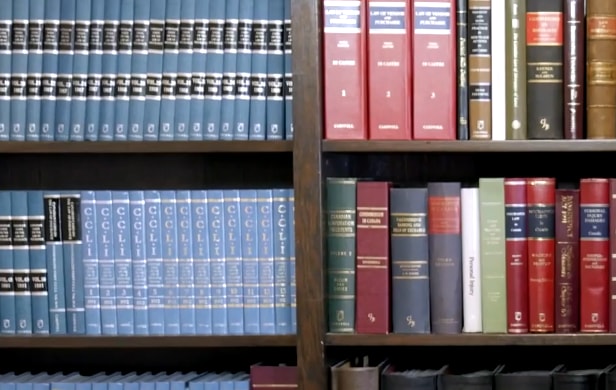Is It Worth Getting A Personal Injury Lawyer
Have you ever been involved in an accident? It is such a hectic life-altering event. It is the moment you wish for the best, but you expect the worst. The personal injury comes in when you have been a victim of such an occurrence. How do you handle the situation? Where do you start? Who do you first consult when the position is more than you can control? Accidents might affect you a lot mentally. Your health insurance might start complications, and you are very weak t begin negotiations with them. This is precisely where the personal injury attorney comes in.
Hiring a personal injury lawyer comes along with significant advantages. You get to have great peace of mind as you have someone with the right knowledge of the law of the land. They will handle e all the required procedures that apply to all the injury claims that you get to have. With an attorney on your side, you will never go wrong.

What Benefits does the Lawyer Bring on Board?
Creating Value On Your Suffering
They know how much your claim is worth. Most of the people do not have an understanding of how much amount of money they can get from their application. Every request that gets you either through an accident can as well benefit you. When you are doing it on your own, you are likely to leave it to go and concentrate on your recovery. This will, however, happen once you have the persona that will stand by your side. Some claims are worth a fortune. An attorney can put a value on your pain and suffering.
Most of the attorneys will take their cases on the contingency basis. This is the best case as there are no upfront costs. You do not have any reason to fail to hire a personal injury lawyer. Through this, they will be able to address your case accordingly.
They Are Experts In The Field
The reason he is an attorney is that he understood the entire legal process. They have as well been trained and certified before being allowed to represent people in legal matters. At times you get to develop a gap in your legal knowledge. Through this insurance companies help you in the legal action. They will help you get your compensation and even take your case to court in the case the insurance doesn’t work in the right way.
It would be a very hurting situation when you know that you missed a settlement of thousands of dollars just because you did not follow a few legal procedures.

Presents Confidence in the Insurance
Very few people are prepared to go to trial when you don’t have a well-renowned attorney. The insurance knows that you are prepared to go to trial. The case can even rule against your favor after you invested a lot of money in the case. Hiring an accident attorney makes things easier. They will help you through the case settlement. The lawyers are well trained to handle the situation, primarily through trial. Through statics, most of the cases have been battling against the different insurance companies. In such a case insurance will ensure that they get a motivating settle that will stop the case from proceeding to trial.
Vancouver Personal Injury Lawyer
Tim Louis & Company
175 E Broadway, Vancouver, BC V5T 1W2
(604) 732-7678



 When you are injured as a result of another driver’s negligence, you are entitled to
When you are injured as a result of another driver’s negligence, you are entitled to  In the case of ongoing injuries which require ongoing treatments, you are entitled to compensation for the present value of the future cost of those treatments or for the cost of assistance you require with homemaking expenses.
In the case of ongoing injuries which require ongoing treatments, you are entitled to compensation for the present value of the future cost of those treatments or for the cost of assistance you require with homemaking expenses.
 David Brooke is a personal injury lawyer who lives and works in Penticton, BC at his firm,
David Brooke is a personal injury lawyer who lives and works in Penticton, BC at his firm, 
 Starting a lawsuit against the party responsible for an accident is the beginning of what can be a lengthy journey. While most lawsuits end up settling out of court, it is very difficult — usually impossible — to get trial dollar settlements without a trial date on the horizon.
Starting a lawsuit against the party responsible for an accident is the beginning of what can be a lengthy journey. While most lawsuits end up settling out of court, it is very difficult — usually impossible — to get trial dollar settlements without a trial date on the horizon. So we have a trial date on the horizon. Any number of outcomes from the MVA can be your new reality, but the two most striking ones are polar opposites: You are either fully recovered or your doctor has advised you that you are not ever going to recover.
So we have a trial date on the horizon. Any number of outcomes from the MVA can be your new reality, but the two most striking ones are polar opposites: You are either fully recovered or your doctor has advised you that you are not ever going to recover. If your injury is permanent you will incur medical expenses after the trial, often for many years. Of course, you will not have receipts for these expenses at the trial itself. These medical expenses are sometimes referred to as Future Costs of Care.
If your injury is permanent you will incur medical expenses after the trial, often for many years. Of course, you will not have receipts for these expenses at the trial itself. These medical expenses are sometimes referred to as Future Costs of Care.


 The
The 
 The employee did not get permission from the Director of the Employment Standards Branch. The
The employee did not get permission from the Director of the Employment Standards Branch. The 

 Surprisingly, the
Surprisingly, the  In today’s world of
In today’s world of 


